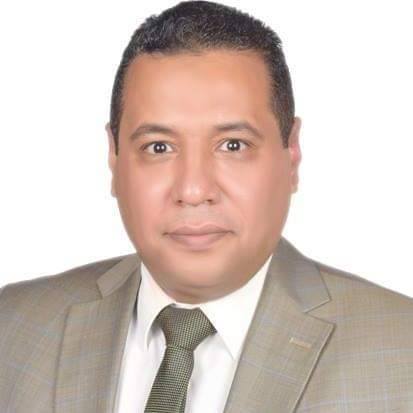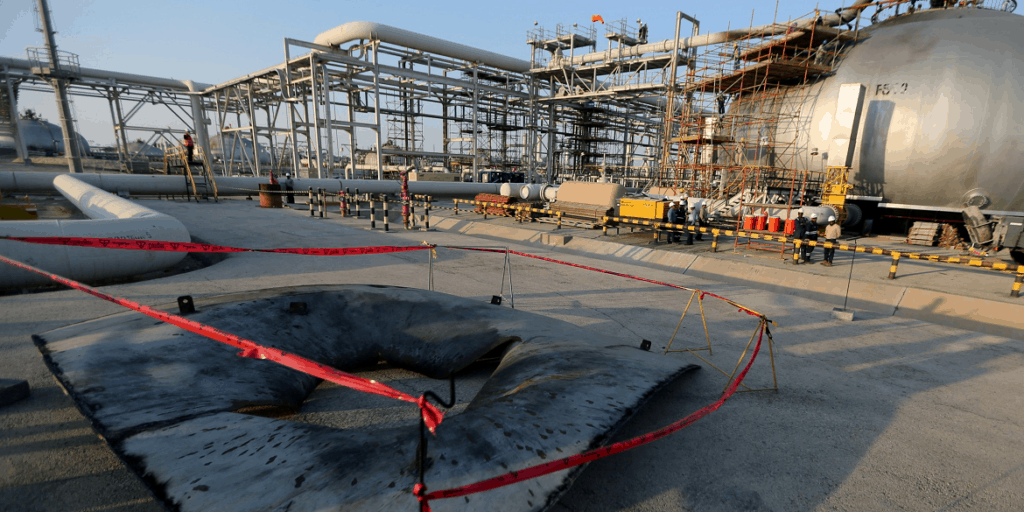Denis Korkodinov – Interview with Sayed M. Ismail Mousa
Less than a month after the attacks on Saudi Aramco’s oil facilities, world oil prices and the production process seem to have stabilized. However, the international community is still in a state of uncertainty due to the awareness of the threat of renewed attacks that could put the world economy on the brink of disaster. The reason for the resumption of the panic regarding the relatively sharp fluctuations in the prices of black gold was the attack on October 11, 2019 of the Iranian oil tanker Sabiti, which was heading to Syria. Iranian news agencies accuse Saudi Arabia of attack. Global indices quickly reacted to this news, updating the ceiling of oil prices.
Especially for World Geostrategic Insights, we talked about this with Sayed M. Ismail Mousa, professor at King Abdul-Aziz University, Saudi Arabia.

1. As a result of the attack on Saudi oil facilities, the world economy was in a very vulnerable position due to the expectation of a shortage of “black gold”. However, Riyadh very quickly began the process of restoring oil production and supply facilities, for which it began to purchase oil from the United Arab Emirates and Kuwait. As a result, many experts agreed that Saudi Aramco will not have any problems with production in the very near future. In particular, oil production at the Khurais facility currently stands at more than 1.3 million barrels per day, while production in Abkaik is around 3 million barrels per day and continues to increase. On this basis, most likely, no catastrophic losses for the global economy due to attacks on Saudi Aramco facilities will follow. Is this information true? What negative consequences for the global economy should be expected if attacks on Saudi oil facilities resume, given the fact that neither the Ansar Allah movement in Yemen nor Iran has provided guarantees that Saudi Arabia will not be attacked again? How should oil-exporting countries respond in order to minimize their costs due to reduced oil production and supply?
– Saudi Arabia is a central and strong country in the Middle East, both economically and politically. Saudi Arabia has the second largest proven oil reserves in the world and is the second largest daily oil production. The attacks of September 14, 2019 in Abkaik and Khurais, aimed not only to seriously damage the economy of the kingdom, but also negatively affect the global economy. In addition, these attacks were aimed at undermining confidence in Saudi opportunities for supplying crude oil. For Riyadh, this was a serious challenge to restore oil production and supply in the shortest possible time.
Saudi Arabia can prove that it is a reliable, safe and reliable oil supplier. Crown Prince Mohammed bin Salman reacted positively and wisely to the attacks of drones and missiles, regarding the attacks as an opportunity to improve production facilities. As a result of this, the country stabilized oil production at the level of 11.3 million barrels per day and made additional commitments to keep production not lower than 10.3 million barrels per day.
I do not think that attacks can resume either in the near future or in the long run because of the concerns and proactive procedures undertaken by Saudi Arabia. Attempts to repeat the attacks will be interpreted as an act of war not only against the kingdom, but also against the world economy.
Oil exporting countries have no leverage to minimize their costs due to reduced oil production and supply, with the exception of higher crude oil prices.
So, the price of crude oil will spontaneously increase after any terrorist attack aimed at oil refineries. In particular, after attacks on Saudi Aramco facilities, the price of a barrel of Brent crude oil rose sharply. Then there was a slight drop in prices after Donald Trump promised to free some US oil reserves in order to make up the shortage from Saudi Arabia.
2. In addition to the excessive dependence of the world economy on oil, attacks on Saudi Arabia have shown another problem that threatens all the countries of the Middle East and the Persian Gulf: the failure of national defense systems, when all states are not immune to the destruction of their strategic targets using external ballistic missiles players. For this reason, attacks on Saudi Aramco sites significantly change the geopolitical picture of the Arab world: new defensive alliances of states are being created, world leaders are forced to spend more money on modernizing air defense systems. In other words, this can serve as an incentive for a new arms race, which not only does not contribute to peace, but also leads to an escalation of conflicts between countries. Is it really? Is the geo-strategy of Saudi Arabia, Iran, and Israel changing in this connection, given that these countries are the main beneficiaries of regional tension?
– The Kingdom of Saudi Arabia is violently resisting Iranian intervention in the region, especially in Yemen, with the goal of protecting Sunni Islam, securing its borders, cultural and demographic integrity, and marginalizing the hegemonic Iranian project in the Middle East. Iran seeks to change the religious, cultural, historical and even economic map of the Middle East through its project, which began with its relentless attempts to control Iraq and change its demographic map by moving Sunnis from areas where they represent the majority to other regions as a step religious cleansing. Tehran is also trying to pursue its policy in Yemen through the ideological and religious exploitation of the leaders of the Ansar Allah military movement.
Meanwhile, the security of Yemen is closely linked to the national security of Saudi Arabia.
Thus, the war of Saudi Arabia in Yemen is defensive, which is aimed not only to stop the cultural, ideological and imperial expansion of Iran in the region, but also to protect its borders and national security.
In turn, the continued intervention of external players in Arab affairs will lead the entire region to an inevitable and destructive armed conflict that will have consequences for the entire Middle East.
I think that both Saudi Arabia and Israel will not benefit from such an armed conflict in the region. Saudi Arabia is a politically and economically stable country that recently witnessed a remarkable cultural and economic rebirth under the ambitious vision of Crown Prince Mohammed bin Salman, as he developed a very ambitious transformation plan that will have a significant impact on the future of the kingdom. Both its relations with the international community and the implementation of such a progressive policy require stability, peace and the establishment of strong ties with neighboring countries.
Israel’s geostrategic position forces it to maintain peaceful relations with neighboring Arab countries, since any war in the Middle East will have negative consequences for the security of Tel Aviv, taking into account the idea that, although Israel maintains peaceful relations with Arab countries and is constantly trying to normalize their relations with the Arab world, hostility persists, and most Arabs consider Tel Aviv to be a colonial occupier of Palestine, and wars leave chaos and disorder that can can be used by military groups to harm Israel.
Thus, a war with Iran would also be dangerous for the stability of Israel, as it could give military groups a chance to start attacking it with drones and missiles.
Iran will not benefit from a direct war with the Arab world. The Ayatollah regime began its indirect war with neighboring countries under the guise of the Ansar Allah movement in Yemen and the Hezbollah movement in Lebanon. However, a direct war with Iran requires an international coalition that can secure the lines for transporting oil from the Persian Gulf countries to the world, which is not only the responsibility of Saudi Arabia, but represents a vital necessity for the entire world community.
3. Saudi problems caused sharp fluctuations in the world market, as a result of which Riyadh, Washington, Paris, London and a number of other regional players declared the need for a retaliatory military strike on Iranian territory. Meanwhile, the defeat of the Iranian strategic infrastructure,as a result of hostilities could lead to a complete collapse of the global economy, which will clearly not be comparable to the damage that arose as a result of attacks on Saudi Arabia’s facilities. What specific negative consequences for the global economy may arise in the event of a military attack on Iran? Will this lead to a complete break in existing economic ties between the states of the Middle East, the Persian Gulf and Europe?
– I think that a military solution should be seen as an extreme response to Iran, because any act of war will have devastating consequences for all parties involved. Among the specific negative consequences in the event of a war is the temporary suspension of oil supplies from the Persian Gulf countries to importers of crude oil. The war will temporarily hinder the existing economic ties between the states of the Middle East and Europe, but will not completely break them. However, a military solution cannot be avoided if Iran maintains its policy of aggression and attacks on neighboring countries, and this decision should receive global support.
Image Credit: Reuters/Hamad







